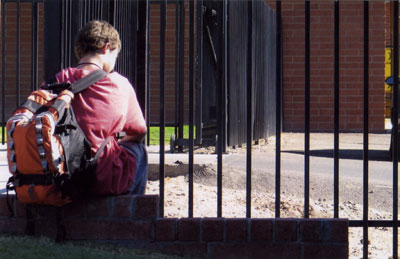All Nonfiction
- Bullying
- Books
- Academic
- Author Interviews
- Celebrity interviews
- College Articles
- College Essays
- Educator of the Year
- Heroes
- Interviews
- Memoir
- Personal Experience
- Sports
- Travel & Culture
All Opinions
- Bullying
- Current Events / Politics
- Discrimination
- Drugs / Alcohol / Smoking
- Entertainment / Celebrities
- Environment
- Love / Relationships
- Movies / Music / TV
- Pop Culture / Trends
- School / College
- Social Issues / Civics
- Spirituality / Religion
- Sports / Hobbies
All Hot Topics
- Bullying
- Community Service
- Environment
- Health
- Letters to the Editor
- Pride & Prejudice
- What Matters
- Back
Summer Guide
- Program Links
- Program Reviews
- Back
College Guide
- College Links
- College Reviews
- College Essays
- College Articles
- Back
Unfriending Lauren MAG
The powerful piece “Unfriending Lauren” is an incredible, heartfelt read about the author’s trip to her therapist. She describes her struggles dealing with Obsessive Compulsive Disorder, otherwise known as OCD, which is a mental disorder that can seriously mess with the way you are able to perform day-to-day tasks. The writer details several ways that her routine differs from the norm, like “sticking my hands under scorching water and scrubbing them because they never feel clean enough, or purposely biting the left side of my lip to make it bleed because I accidentally bit the right side.”
I was shocked to read about the ways the author hurt herself and what turmoil she was experiencing because of her OCD. Apparently, she has “checking and mental-contamination” OCD. Before I read this, I hadn’t even known that there were multiple types of OCD. I had never met anybody with a mental disorder or OCD, but from the way it is portrayed in the media I had assumed that people with OCD are typically very jumpy, impatient, clean, and picky about small and insignificant details. I now see that OCD is much more than irritability; it is a serious health issue that needs to be addressed and represented more accurately in the media so people can help, understand, and sympathize with those afflicted.
I’d like to thank the author for showing the truth about OCD. By exposing your struggles to the world, today’s generation can be more educated about a disorder that many people battle.

Similar Articles
JOIN THE DISCUSSION
This article has 0 comments.
